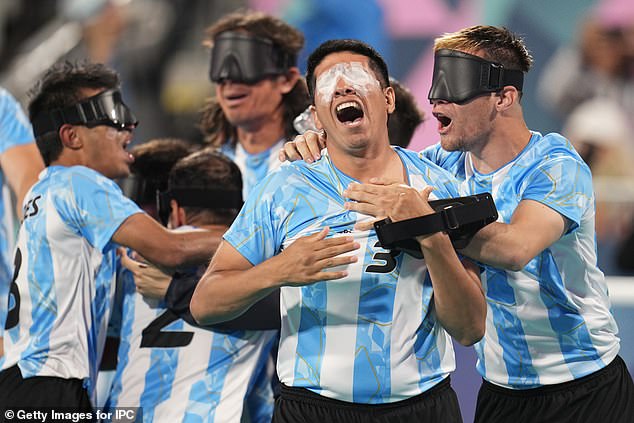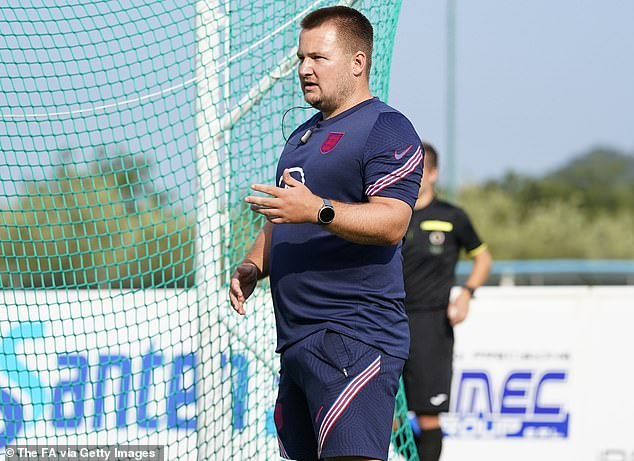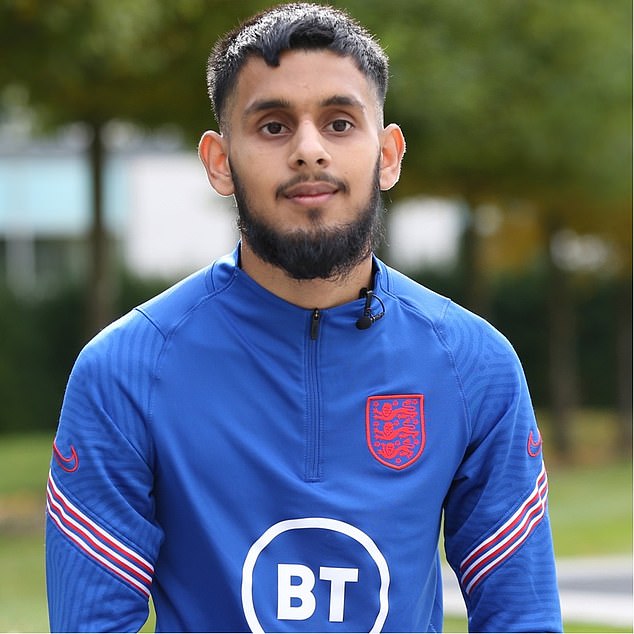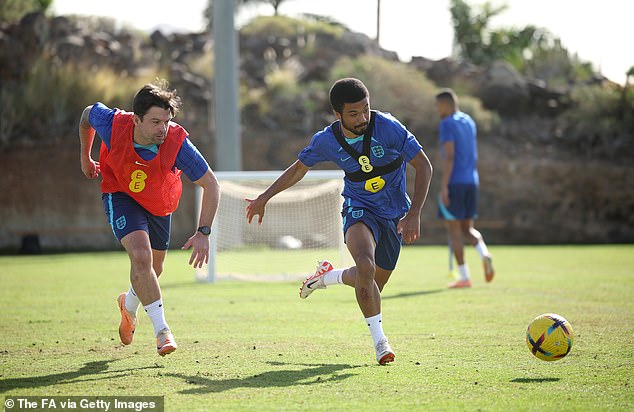Britain’s blind Paralympic football team targets LA 2028 qualification with rising talents set for future stardom – but more club sides are needed if they want to match the levels of Brazil’s dominance
The focus over the last ten days has been on the British Paralympic athletes who made it to Paris and thrived, but the football team who didn’t make it had it extra tough.
Britain’s blind footballers would have shared the Games’ most spectacular stage, in front of the Eiffel Tower, had England not lost on penalties to Turkey in the 2022 European Championship semi-finals. The European Championship was a ticket to a tournament that has been one of the triumphs of the Paralympic Games.
As France prepare for the final of the mini-football sport on Saturday evening against Argentina, England manager Adam Bendall is sending his players to a training camp at St George’s Park in preparation for a tournament in which they will face the United States, Canada and Honduras in San Diego in November.
“We had so many chances in that game but Turkey blocked them,” said Bendall, a former Hereford United player who became the team’s coach after volunteering at the city’s Royal National College for the Blind, which is home to one of Britain’s three clubs.
Brazil’s semi-final defeat on penalties to Argentina on Thursday night dethroned the team that has won the last five Paralympic titles. That dominance has been born from a culture of mass participation – the country has 35 club teams – and the development of players from an early age.
The field under the Eiffel Tower is one of the most spectacular stages of the Paralympic Games

Brazil’s semi-final defeat on penalties to Argentina on Thursday night dethroned the team that has won the last five Paralympic titles

England manager Adam Bendall (pictured) will lead his players through a training camp at St George’s Park ahead of a tournament in November.

Bendall and the FA are now bringing in their own 18 and 19-year-olds. Teenagers Azeem Amir and Eesa Amjid – key figures in the England squad – will hopefully help qualify for LA 2028.
“They’ve been playing since they were nine and they’re at a really good football age,” Bendall said. “We start coaching our players at a much younger age and part of that has been getting more people to know that blind football exists.”
Many countries don’t do this. The French team that the entire nation will be watching on Saturday night has many players in their 40s.
Coaches like Bendall are incredibly important during games because they – and the goalkeepers of the teams, who have visibility – let players know where the space is. It is a question of balance though. Players sense where the ball is through a bell in the ball, so coaches should not override that
“Communication is a skill and sometimes we get it wrong,” Bendall said. “Sometimes players are completely autonomous and they go with their gut.”

Bendall and the FA are now bringing their own 18 and 19 year olds in Eesa Amjid (pictured)

The England team are now working to bring in the next generation of emerging talent in the sport
This certainly applies to the two best players in the world: the Brazilian Jefinho – the so-called ‘Paralympic Pele’ – and Ricardinho.
“I’m always impressed by what they can do,” said Bendall, who before coaching England was one of the guides behind the goal who taps the posts during free kicks and penalties so players know where to aim their shot.
Britain would certainly benefit from more club teams. The British teams competing with Hereford are Merseyside and WBA. Brighton have fielded a team in the past. England’s two goalless draws in Hereford last month against Japan – who impressed in Paris – showed the potential is there.
“A big part of a team’s success is based on mutual trust, between players, coach, goalie and guide behind the goal,” Bendall said. “The Brazilians’ dominance showed that. The core of their group has been together for 15 years. We want to build the same kind of group by getting them started early. We believe we are on the right track to share this stage.”
